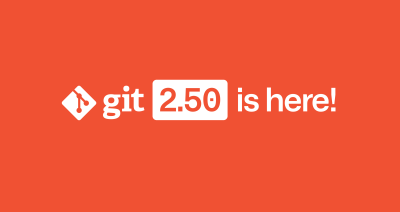Getting started with GitHub Sponsors
This quickstart guide walks you through several ways you can start pursuing funding for your open source work.

Are you interested in GitHub Sponsors but don’t know where to start? Do you have questions about whether you should sign up as an individual or as an organization? This guide walks you through several ways you can start pursuing funding for your open source work.
We’ll cover how to sign up and receive funds, as an:
And we’ll review a few other topics on how to:
- Display your Sponsors profile or external funding links with a button on your project
- Add sponsor buttons to all of your projects
- Give credit to other team members working on your project
How do I receive funds for open source work as an individual?
If you have a GitHub account and contribute to open source, you can apply to become a sponsored developer. This application is where you can share details about your open source work, which is part of determining your eligibility for the GitHub Sponsors Matching Fund. Applicants with a bank account in any of our supported countries will receive an email on how to get started within two weeks.
You can create your sponsorship profile as soon as you receive the welcome email. Your profile is an opportunity to share your work and how you can benefit from sponsorships. After submitting your profile, we’ll review it and let you know when it’s live to share with friends, on social media, in conversations on GitHub, and more.

Once you start to receive funds, you’re responsible for evaluating and paying your own taxes. GitHub does not withhold tax from GitHub Sponsors payments.
Learn more
How do we receive funds as a GitHub organization with a bank account?
If you work on a team that would like to receive funds, and your group has a bank account in any of our supported countries, you can sign up for GitHub Sponsors as an organization.

How do we receive funds as a GitHub organization without a bank account?
If your organization is ready to receive funding but doesn’t have a bank account, sign up with a fiscal host like Open Source Collective.
Once you have a fiscal host, your GitHub organization can sign up for sponsorship. When you sign up for GitHub Sponsors, select “This organization is using a fiscal host.”
How do I display my GitHub Sponsors profile on a project?
As a sponsored developer, you can display a sponsor button on your repository, so others can support your project.
- Add a FUNDING.yml file to your foobar repository.
# repo: your_github_handle/project_name # filename: FUNDING.YML github: your_github_handle - Enable Sponsorships in the Settings page.

- Visit your repository where you enabled the Sponsor button. The button is now displayed for future sponsors.

How do I display Patreon, Open Collective, or another external funding platform on a project?
You can display one or more external funding options by adding them to your FUNDING.yml file:
patreon: patreon_username
open_collective: open_collective_username
ko_fi: ko_fi_username
tidelift: tidelift_package_name
community_bridge: community_bridge_username
liberapay: liberapay_username
issuehunt: issuehunt_username
otechie: otechie_username
custom: ["custom_url.com", “another_custom_url.com”]
How do I add sponsor buttons to all of my projects?
If you have a bunch of projects, it’s a hassle to create a FUNDING.yml file for every individual repository. Instead, you can add a default FUNDING.yml file for all of them. This default can be overridden for each repository.
Create a default FUNDING.yml file for all projects in your personal .github repository.
# repo: your_github_handle/.github
# filename: FUNDING.YML
github: your_nameIf the projects live within a GitHub organization instead of your personal account, follow the same process—just add FUNDING.yml to the organization’s .github repository instead.
How do I give credit to other team members working on my project?
If you start working with another developer on your project, you may want to add their GitHub Sponsors profile to the project. You can update the FUNDING.yml file for the project to make their profile visible on the modal for the Sponsors button.
# repo: your_github_handle/foobar
# filename: FUNDING.YML
github: [your_github_handle, friend]
Tags:
Written by
Related posts

Git security vulnerabilities announced
Today, the Git project released new versions to address seven security vulnerabilities that affect all prior versions of Git.

Highlights from Git 2.50
The open source Git project just released Git 2.50. Here is GitHub’s look at some of the most interesting features and changes introduced since last time.

4 trends shaping open source funding—and what they mean for maintainers
Get insights on the latest trends from GitHub experts while catching up on these exciting new projects.